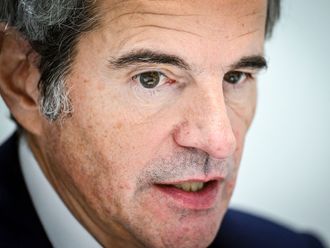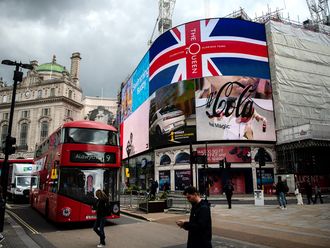Manama: Ismail Haniyeh, Gaza's de facto prime minister, will visit three Gulf countries and Turkey, but no date has been announced for the tour, his political advisor has said.
Yusuf Rizgeh, cited by a Palestinian news portal, said on Monday the Hamas leader would travel to Qatar, the UAE, Bahrain and Turkey.
"Haniyeh will be discussing with the leaders of these countries the situation in Palestine, the Palestinian-Israeli conflict and the drive by the Palestinians to obtain the United Nations membership," the advisor said.
"He will also review the political reconciliation and partnership, reconstruction in Gaza and ways to address unemployment among Palestinian youth," he said, quoted by felesteen.ps.
In April, London's Al Hayat daily reported that Hamas had decided to leave Syria and that Qatar had approved to host only the political wing of the movement after Egypt and Jordan refused to host it. Hamas however rejected the report as "baseless allegations".
Earlier this month, The Wall Street Journal reported that Hamas would abandon its Damascus headquarters after pressure from Turkey and Qatar and that it would move its base to Cairo and Doha, even though Iran was attempting to dissuade the Palestinians from relocating.
'No immediate plans for Hamas to relocate'
However, a Hamas official denied the report, saying that there were "no immediate plans for Hamas to relocate its headquarters from Syria to another Arab state".
According to Beirut-based Al Akhbar, the official conceded that the Palestinian group's operations had been disrupted by the ongoing Syrian crisis, but said that "no decisive step" had been taken to leave Syria.
In May, the New York Times reported that Hamas officials acknowledged that relations with Syrian officials had been tense.
"The Syrian government said it wants us to express clearly our position over what is going on in Syria," a senior Hamas official said.
"It wants us to be against the Syrian demonstrations. We told them we are neutral. We said to them we are living in the country as visitors and we have no right to comment or interfere in the country's problems," he said.












